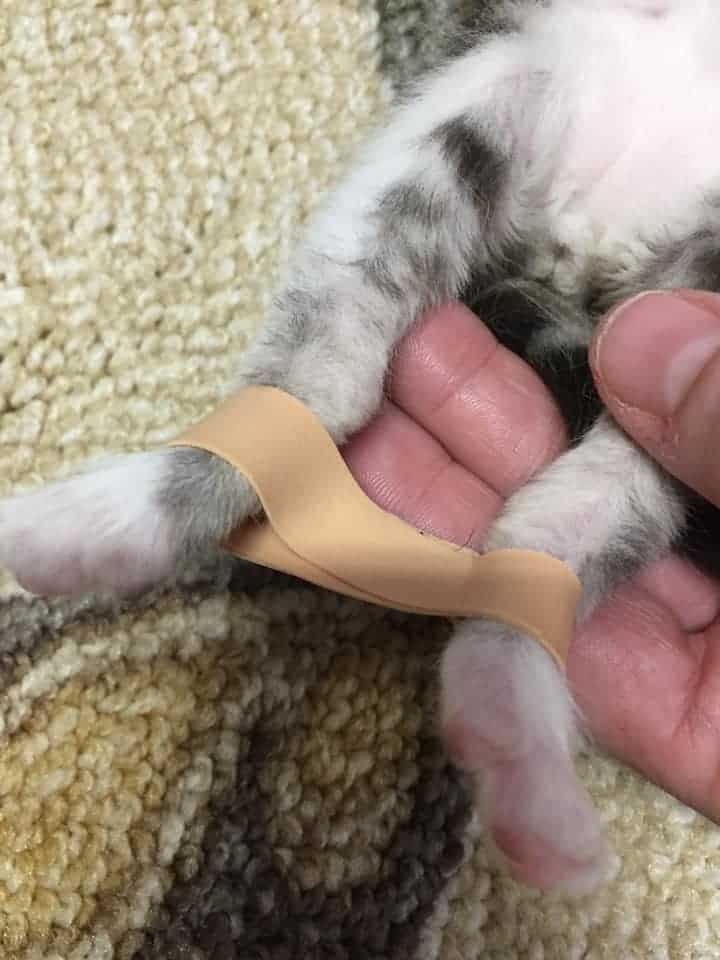Introduction:
If you’re a pet owner, you’ve probably wondered at some point how old to fix a kitten. Spaying or neutering, also known as sterilization, is a common surgical procedure that prevents pregnancy and certain health problems in cats.
The decision of when to spay or neuter a kitten is an important one, and there are several factors to consider. This article will provide you with a comprehensive overview of the topic, including the benefits, risks, and the ideal age for the procedure.

Image: malaykuio.blogspot.com
Benefits of Spaying and Neutering
Spaying and neutering offer several potential benefits, including:
- Reduced Risk of Certain Health Problems: Spaying female kittens eliminates the risk of uterine infections (pyometra) and ovarian cancer later in life. Neutering male kittens reduces the risk of testicular cancer and prostatitis.
- Fewer Behavioral Problems: Intact cats are more likely to exhibit territorial behaviors, such as spraying (marking with urine) and fighting. Spaying and neutering calms these behaviors, making cats calmer and more affectionate.
- Population Control: Uncontrolled breeding can lead to overpopulation of cats in shelters and rescues. Spaying and neutering helps to reduce unintentional litters.
Ideal Age for Spaying and Neutering
The ideal age for spaying or neutering a kitten varies depending on several factors, such as breed, size, and maturity level. However, most veterinarians recommend the procedure be performed between four and six months of age.
- Kittens that are spayed or neutered before puberty are less likely to develop certain behavioral problems associated with intact cats.
- Spaying or neutering at a younger age is also less traumatic for the kitten and results in a faster recovery.
The Spaying and Neutering Procedure
Spaying and neutering are surgical procedures that require general anesthesia.
- Spaying: During spaying, the veterinarian removes the uterus and ovaries. This prevents the cat from becoming pregnant and eliminates the risk of uterine infections and ovarian cancer.
- Neutering: Neutering involves removing the testicles. This prevents the cat from impregnating other cats and reduces the risk of testicular cancer and prostatitis.

Image: coleandmarmalade.com
Recent Trends and Developments
There have been some recent trends and developments in the spaying and neutering of kittens.
- Early neutering: Some veterinarians now recommend neutering male kittens as early as eight weeks of age. This is believed to reduce the risk of certain behavioral problems, such as spraying and fighting.
- Laparoscopic spaying: Laparoscopic spaying is a minimally invasive technique that uses a small camera and instruments to remove the uterus and ovaries through a few small incisions.
Tips and Expert Advice
Here are a few tips and pieces of expert advice to consider when spaying or neutering your kitten:
- Consult your veterinarian: Make sure to discuss the ideal age for spaying or neutering your kitten with your veterinarian. They can assess your cat’s individual needs and make the best recommendation.
- Choose a reputable veterinarian: Experience and expertise are important in any surgical procedure. Choose a veterinarian who is skilled in spaying and neutering kittens to ensure the best possible outcome.
- Follow post-operative instructions: After spaying or neutering, your cat will need to be monitored for any complications. Follow your veterinarian’s instructions carefully to ensure a smooth recovery.
FAQ
Q: Is it safe to spay or neuter a kitten?
A: Yes, spaying and neutering are safe surgical procedures when performed by a qualified veterinarian.
Q: How long does it take for a kitten to recover from spaying or neutering?
A: Most kittens recover within a few days to a week after surgery.
Q: What are the risks of spaying or neutering a kitten?
A: The risks of spaying or neutering are rare, but include bleeding, infection, and anesthetic complications.
Q: How much does it cost to spay or neuter a kitten?
A: The cost of spaying or neutering a kitten can vary depending on your location and the veterinarian you choose.
How Old To Fix A Kitten
Conclusion
Spaying and neutering your kitten is an important decision that can have significant health benefits and behavioral impacts. By understanding the ideal age, benefits, risks, and post-operative care involved, you can make an informed decision that is best for your pet’s well-being. Remember, spaying and neutering not only benefits your kitten but also helps to control pet overpopulation and contribute to animal welfare.
Call to Action:
If you’re considering spaying or neutering your kitten, schedule an appointment with your veterinarian today to discuss the best plan for your pet.